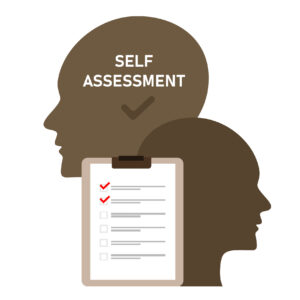
With the onset of remote and hybrid working environments following the pandemic, the use of personality tests in the hiring process is again under the spotlight. A practice that dates back to the 1900s, personality testing during recruitment has been both praised and criticized. But what does this mean for our post-pandemic workforce? Is it an ethical practice or a problematic one? This piece will explore the various facets of this ongoing debate.
If you believe you have been the victim of discrimination, whether due to a personality test or for other reasons, contact an employment law attorney by calling PLBH at (800) 435-7542.
The Changing Workforce Landscape: A New Professional Era
The economic turmoil and shifts caused by COVID-19 have affected the American workforce deeply. Many have found themselves without jobs, while others have transitioned into new ways of working. This has resulted in a rise in the use of personality tests for job applicants. Some candidates find rejection after completing these assessments, a practice known as “typing,” which has led to questions about its ethics and impact.
Remote Work and Personality Testing
As remote work gains traction, personality testing is becoming more common. The question arises: Are these tests aiding our workforce, or are they causing harm? Can they actually reduce discrimination, or do they enable it? These are pressing questions that must be explored.
Personality Assessments – A Closer Look at the Different Types
Several personality assessments are used by employers, including:
- The DISC Assessment: Measures Dominance, Interactivity, Steadiness, and Conscientiousness.
- Myers-Briggs Type Indicator (MBTI): Categorizes into 16 different personality types.
- The Enneagram: Sorts into 9 types based on behaviors, motivations, and fears.
Pros and Cons: The Two Sides
Pros:
- Alignment with Position: Tests help establish if a candidate fits the specific position. A trait that might be a weakness in one role could be a strength in another.
- Enhanced Self-Awareness: These assessments can make individuals more aware of their interactions, functions, and communication styles at work.
- Fulfillment Matching: They can help determine if an applicant will truly enjoy and thrive in the position.
Cons:
- Lack of Predictive Ability: Most tests are not designed to forecast job performance.
- Inaccuracy: The results may not always be accurate. Candidates might not answer honestly or may feel pressured.
- Potential Discrimination: Personality tests could unintentionally discriminate against individuals based on factors protected by law.
Legal Perspectives: Is Personality Testing Discriminatory?
The line between beneficial and harmful usage of personality assessments is fine and often complex. The human-made nature of these tests can lead to biases, and certain tests might still reflect outdated perspectives.
Several lawsuits have been filed against employers for the discriminatory use of personality tests. The experienced attorneys at PLBH can assist in these situations and can be reached at (800) 435-7542.
Signs of Discriminatory Usage
Some potential red flags indicating discriminatory usage include:
- Disqualifying candidates solely on test results.
- Altering the test questions.
- Not explaining the purpose of the test to candidates.
- Over-relying on the test results without seeing the broader picture.
A Balanced Approach is Necessary
Personality testing in hiring is neither wholly good nor bad. While it can offer valuable insights, there are significant concerns that must be carefully considered. Employers must approach these tests with caution, understanding their limitations and potential legal implications.
The ethical debate surrounding personality assessments continues, and perhaps a balanced, well-regulated approach is what’s needed. Both employees and employers can benefit from a thoughtful, conscientious use of these tools, always guided by fairness, empathy, and a commitment to equal opportunity in the workplace. Contact PLBH at (800) 435-7542 if you feel you have been the victim of workplace discrimination due to a personality test.
